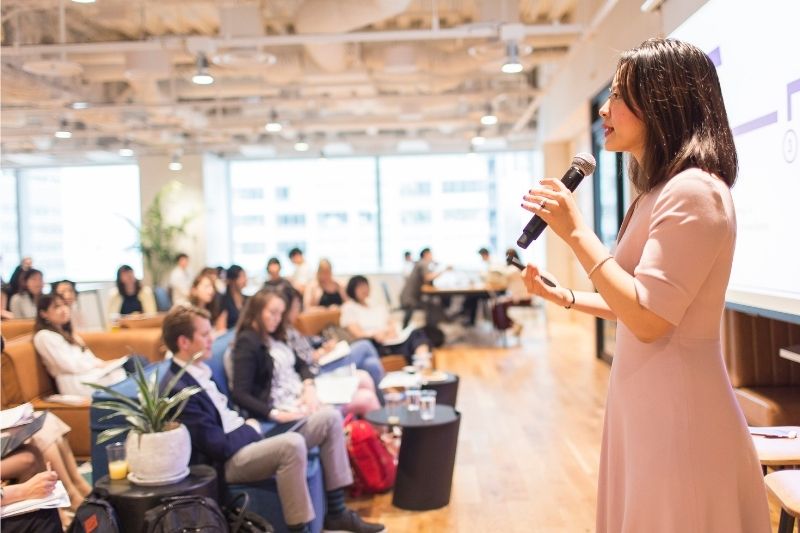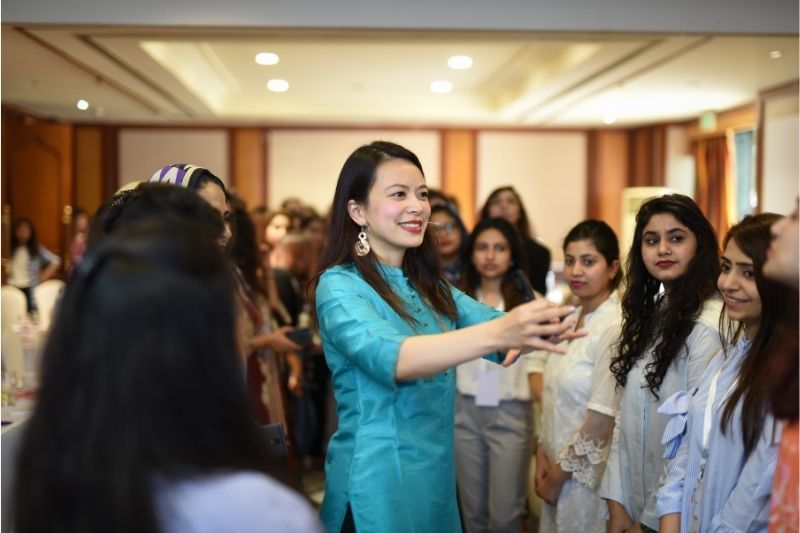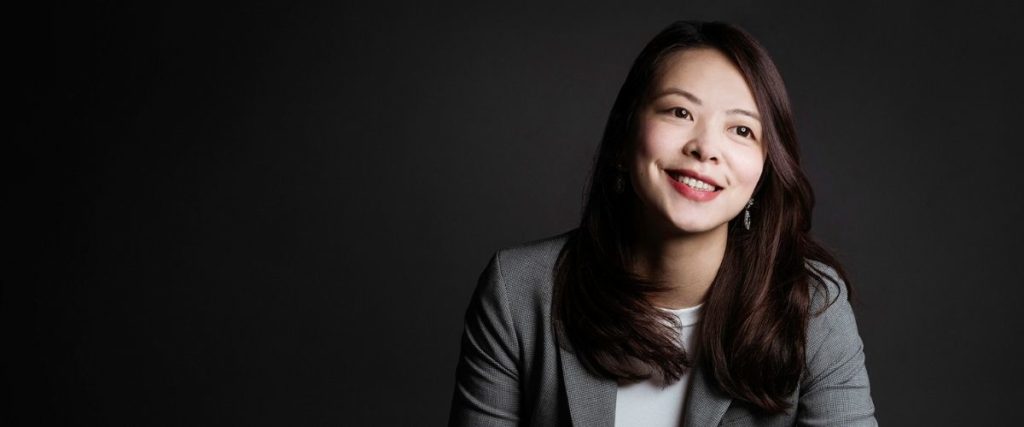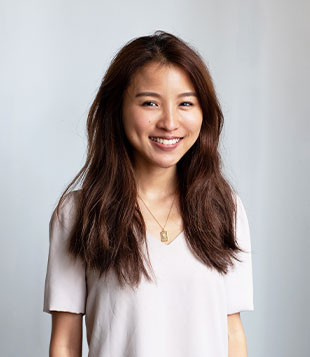Australia-based organisation The Dream Collective is striving to collapse gender disparity and provide more sponsorship for working women.
Although the subject of gender equality in the workforce has been a hot topic for many years, most companies have yet to make advancing women a real business priority. In a survey conducted by IBM Institute for Business Value (IBV) in cooperation with Oxford Economics, it was revealed that within those organisations surveyed, only 18% of senior leadership positions were held by women. This is despite the fact that women account for over 40% of the total labour force in many countries.
When we discuss the gender gap at the top, the “glass ceiling” is often cited as the culprit. In practice, women hit a roadblock much earlier in the pipeline — at that very first step up from entry-level to manager. This is what is called the “broken rung” issue, and it is what precludes women from rising to leadership positions.
The broken rung continues to be an often unaddressed issue, in large part due to the disjunction between how men and women perceive the issue, as illustrated in a survey conducted by McKinsey and Leanin.org. There, it showed that while 19% of women consider the biggest challenge to their career progression being down to the fact that women in junior positions are far less likely to get that first promotion into management than their male counterparts, this same thinking only resonated with 7% of the men. This mentality stands, despite the reality that for every 100 men promoted and hired to managerial status, only 72 women are promoted and hired, leaving many stuck at entry level. It’s perhaps unsurprising, therefore, that that same survey reports men as holding 62% of manager-level positions, and women just 38%.
Looking to change the status quo is The Dream Collective (TDC), a global diversity and inclusion consulting firm dedicated to driving sustainable change in female representation at the workplace. Modeled on the MBA syllabus of world leading business schools, TDC helps to create meaningful dialogue within organisations to attract, retain, and advance female talents. Sarah Liu, founder of TDC, tells Hive Life about the barriers working women face, the importance of gender inclusivity, as well as her tips on overcoming them.

Could you start by telling us what the impetus was behind starting the Dream Collective?
Prior to starting The Dream Collective, I was leading brand strategies for the world’s largest consumer brands. I’ve always been very ambitious and set on climbing the career ladder. What happened was, I came face to face to the reality that there was a lack of development opportunities, particularly for mid-career female talent. As I looked across the board, there was support for senior female executives but by that point you’ve already lost the majority of women in the middle pipeline. In light of that, I took it upon myself to solve that problem by starting The Dream Collective.
With your experience in meeting top talent and working with leading companies across a variety of industries, what are the main obstacles you see women face today?
I think it comes down to two things – structural and personal barriers. Structural barriers are biases that have been built into the system. They determine how we are evaluated, how our performance gets appraised. This is illustrated by the fact that likability and success are positively correlated for men, but negatively correlated for women.
And then you’ve got the personal barriers, the type of self-limiting beliefs that affect our confidence. By virtue of the way women have been socialised and conditioned, we tend not to negotiate as much or when we do negotiate, it reflects badly on us.
Would you share some examples of gender discrimination in the workplace?
There are the more visible ones and then the less visible ones. I think people sometimes look at the more visible ones and say, “oh that doesn’t happen anymore” or “I’ve never experienced that”. Then there are cases that are less detectable, but actually are very pervasive. A lot of times we see in our clients that when a female staff comes back from maternity leave, there’s this automatic assumption that they’re going to be less committed to work, that they are going to prioritise their family. Then they take them off projects that involve travelling or late night calls with the head office, and they don’t do the same with men. The thing is, we’ll see the managers’ line of thinking as that they’re doing her a favour, but in reality that’s not actually what she wants. In fact, she’s sitting there and going, “why am I being robbed of those opportunities?” And that’s what I want to focus on, the biases that compromise women’s opportunities and likelihood of advancing to leadership positions. I want to send a message that sometimes the unconscious, invisible biases can be just as noxious and that’s exactly how we design our programme. It’s a holistic approach in the sense that it tackles the issue across all levels, from examining how they hire and then develop their leaders to their internal culture. We also create male allies within the company and train their male managers.

The Dream Collective’s mission is to see improvement in diversity and inclusivity practices at the workplace. Will you tell us what the difference is between gender diversity and gender inclusivity?
An analogy would be: imagine sitting in a meeting and we see that say 30% of people sitting around the table are women or minorities. That’s diversity and representation. Inclusion on the other hand, is how many of those people actually speak up and have their voices heard, respected, and included as part of the conversation.
Why is it imperative for a company to address gender inclusivity and what kind of repercussions companies will face if they don’t?
There are a couple of really simple outcomes and repercussions. One is engagement. If you don’t feel that your voice matters in your organisation, in your workplace where you spend most of the time, then you tend to disengage. And what does a disengaged employee do for the organisation? Not much. They don’t put in the effort, they don’t take initiatives. They do what is the bare minimum, they simply will not perform because they’re disempowered.
And then you look at more structurally what that means for the organisation on a broader level. When you don’t have people speaking up, you’re not actually reaping the benefits of diversity. We conducted research during the COVID period and found that the companies that performed the best, the ones that were able to pivot, innovate, and retain employee engagement, were the ones led by gender equal leadership teams. The reason for this is that diversity brings a clash of ideas which leads to innovation. And if you’re not innovating in the 21st century you’re getting left behind.
If you were to give one piece of advice to that girl who’s looking to ask for a raise, negotiate something, or wants extra maternity leave, etc. what would it be?
They can sign up to our programme! We have a free online program for everyone. It talks you through how to pivot, how to transition a career, and some of the really core capabilities. Anyone in the world can access it, free of charge. It’s really important to look for tools and resources instead of going it on your own. Beyond that, I think we need to get used to speaking up, consistently and constantly. We are not talking this once a year negotiation, you don’t have to wait for an opportunity to speak up. Whenever you have a situation that is less than satisfying, say something.
How can men support women in the workplace?
Be an ally. What that means is to advocate for women, and actively include them in the conversation. A really practical way is if you are asked for your opinion on something, take the initiative to ask a woman for hers as well. If you’re in a position of leadership and influence – sponsor a woman. Always be the one to ask, “Have we considered a woman for this opportunity?”
What are your future plans for The Dream Collective and do you have an end goal?
Global domination! I suppose an audacious goal of ours is for every woman who occupies a position of leadership in the world to say, The Dream Collective has helped them on the journey. That’s our destination and our ultimate goal.
Related Articles
The Women’s Foundation: The NGO Driving Workplace Gender-Inclusivity in HK
This Australian CEO is Using Data to End the Global Gender Violence Crisis
Ida Sports: How Women’s Football Shoes Are Challenging Gender Inequality





